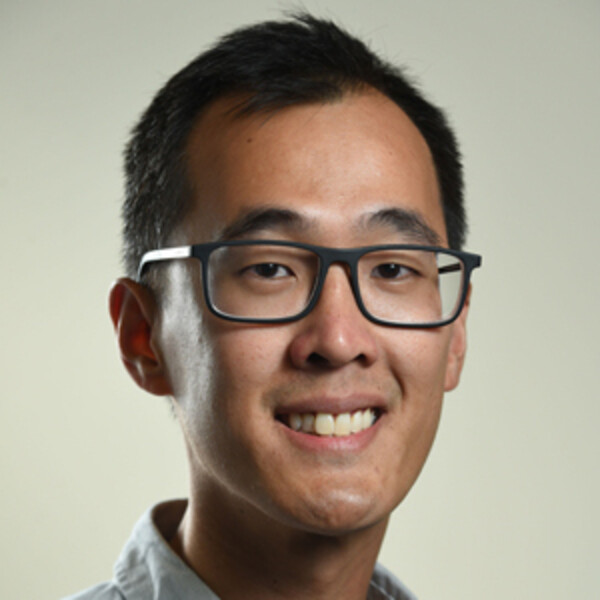Mark Chiew
PhD, University of Toronto

At a Glance
- Development of tools for non-invasive magnetic resonance imaging (MRI) of the human brain
- Strategies for rapid and robust MRI data acquisition
- Computational approaches for biomedical image reconstruction
- Accelerated MRI methods for neuroscience, imaging-based diagnosis and image-guided therapy
Research Synopsis
Computational methods are facilitating the next generation of biomedical imaging technologies, using new approaches for learning and leveraging information about the signals of interest to enable rapid and/or more robust image reconstruction. These approaches are complementary to the development of new imaging hardware, or the discovery of new imaging physics, and provide another pathway for extracting more value from imaging data. Dr. Chiew’s research uses these computational tools to develop new strategies for higher fidelity magnetic resonance imaging (MRI) in the human brain.
Dr. Chiew’s research program has several key themes. First, the development of novel strategies for acquiring neuroimaging data for functional MRI. This includes research on hybrid radial-cartesian sampling approaches for distortion-free, ultra-high resolution fMRI, and methods for robust 3D EPI at ultra-high field strengths (7T). Second, the investigation of sparse and low-rank methods for exploiting signal redundancies correlations, including research on low-rank accelerated fMRI and multi-dimensional structured low-rank tensor methods for imaging and parallel transmit mapping. Finally, the exploration of deep-learning and artificial neural network models for recovery of under-sampled MR images, including research on self-supervised physics-guided neural network reconstruction frameworks. This program of research develops new technologies targeted for discovery neuroscience, clinical neuroimaging, and image guided therapy.
Recent Publications
- Shahdloo M, Schüffelgen U, Papp D, Miller KL, Chiew M. Model-based dynamic off-resonance correction for improved accelerated fMRI in awake behaving nonhuman primates, Magnetic Resonance in Medicine 2022; 87(6):2922–2932
- Clarke WT, Chiew M. Uncertainty in denoising of MRSI using low-rank methods, Magnetic Resonance in Medicine 2022; 87(2):574–588
- Mason HT, Graedel NN, Miller KL, Chiew M. Subspace-constrained approaches to low-rank fMRI acceleration, NeuroImage 2021; 238:118235
- Hess AT, Dragonu I, Chiew M. Accelerated calibrationless parallel transmit mapping using joint transmit and receive low-rank tensor completion, Magnetic Resonance in Medicine 2021; 86(5):2454–2467
- Schauman SS, Chiew M, Okell TW. Highly accelerated vessel-selective arterial spin labeling angiography using sparsity and smoothness constraints, Magnetic Resonance in Medicine 2020; 83(3):892–905
- Chiew M, Miller KL. Improved statistical efficiency of simultaneous multi-slice fMRI by reconstruction with spatially adaptive temporal smoothing, NeuroImage 2019; 203:116165
